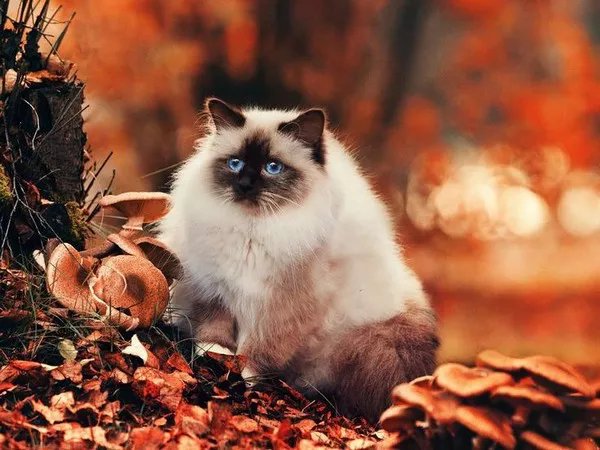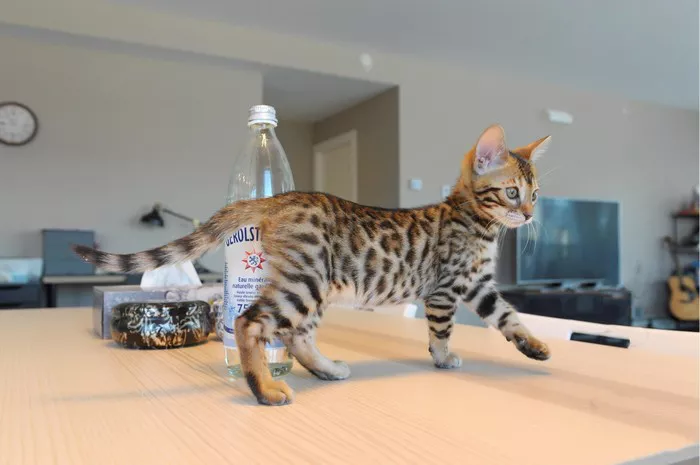Welcoming a Ragdoll kitten into your home is an exciting journey marked by their endearing personality and striking appearance. As responsible cat owners, understanding the nutritional requirements of your 6-month-old Ragdoll is crucial for fostering their growth and ensuring overall well-being. In this comprehensive guide, we explore the intricacies of feeding a 6-month-old Ragdoll, shedding light on dietary considerations that will contribute to a healthy and happy life for your feline friend.
Ragdoll Kittens: A Unique Beginning
Distinctive Characteristics:
Ragdoll cats are known for their gentle temperament, striking blue eyes, and semi-longhair coat with color-point patterns. During their kittenhood, Ragdolls undergo rapid growth and development, necessitating specific dietary considerations to support their unique needs.
Nutritional Demands:
A 6-month-old Ragdoll is at a stage where their nutritional needs are evolving. The right balance of essential nutrients is crucial for bone development, muscle growth, and overall vitality during this crucial period of their lives.
The Do’s: Tailoring a Healthy Diet for Your Ragdoll
High-Quality Kitten Food:
Choosing a high-quality commercial kitten food formulated for their age is the foundation of a Ragdoll kitten’s diet. Look for products specifically designed for kittens, ensuring they receive the right balance of protein, fats, and essential vitamins.
Protein-Rich Diet:
Ragdoll kittens, like all kittens, require a diet rich in high-quality animal protein to support their growth. Protein is essential for developing strong muscles and maintaining overall health.
Balanced Nutrients:
Ensure the kitten food you choose contains a balanced mix of nutrients, including taurine, omega-3 fatty acids, and vitamins crucial for eye health, coat condition, and immune function.
Regular Feeding Schedule:
Establishing a regular feeding schedule is essential for a 6-month-old Ragdoll. Feed them three to four times a day to meet their growing energy demands and support proper digestion.
Fresh Water Access:
Ragdoll kittens, like all kittens, need access to fresh, clean water at all times. Proper hydration is crucial for their overall health and well-being.
The Don’ts: Steering Clear of Potential Hazards
Human Foods:
Avoid feeding your Ragdoll kitten human foods, as many can be harmful. Foods like chocolate, onions, garlic, and caffeinated beverages should be kept out of reach.
Large Quantities of Treats:
While treats can be a part of a balanced diet, avoid overindulging your Ragdoll kitten. Excessive treats can lead to nutritional imbalances and obesity.
Table Scraps:
Resist the urge to share table scraps with your kitten. Stick to their formulated kitten food to ensure they receive the right nutrients in the correct proportions.
Gauging Your Kitten’s Individual Needs
Weight Monitoring:
Regularly monitor your Ragdoll kitten’s weight to ensure they are growing at a healthy rate. If you notice significant weight gain or loss, consult with a veterinarian to adjust their diet accordingly.
Behavioral Cues:
Pay attention to your kitten’s behavior around mealtime. If they consistently leave food uneaten or display disinterest, it may be a sign that their dietary preferences or needs are changing.
Transitioning to Adult Food
Gradual Introduction:
As your Ragdoll kitten approaches the one-year mark, consider transitioning them to high-quality adult cat food. Introduce the new food gradually to avoid digestive upset, mixing it with their kitten food over several days.
Consulting with a Veterinarian:
If you have questions or concerns about the transition to adult food, consult with a veterinarian. They can provide personalized guidance based on your Ragdoll kitten’s individual health and dietary needs.
Addressing Special Dietary Considerations
Allergies or Sensitivities:
Some Ragdoll kittens may develop allergies or sensitivities to certain ingredients. If you notice signs of allergies, such as itching, vomiting, or diarrhea, consult with a veterinarian to identify and eliminate the problematic ingredient from their diet.
Health Conditions:
If your Ragdoll kitten has specific health conditions, such as urinary tract issues or dental concerns, work closely with a veterinarian to tailor a diet that addresses these unique needs.
Conclusion:
In conclusion, providing a well-balanced and carefully curated diet is essential for the health and happiness of your 6-month-old Ragdoll. By adhering to the dietary do’s and avoiding the don’ts, cat owners can contribute significantly to the overall well-being of their feline companions.
Understanding the unique nutritional needs of Ragdoll kittens, monitoring their growth, and making adjustments as they transition to adulthood ensure that these affectionate and beautiful cats lead long, healthy lives. As responsible cat owners, providing the best nutrition for our Ragdoll friends is an expression of love and commitment to their well-being.

























